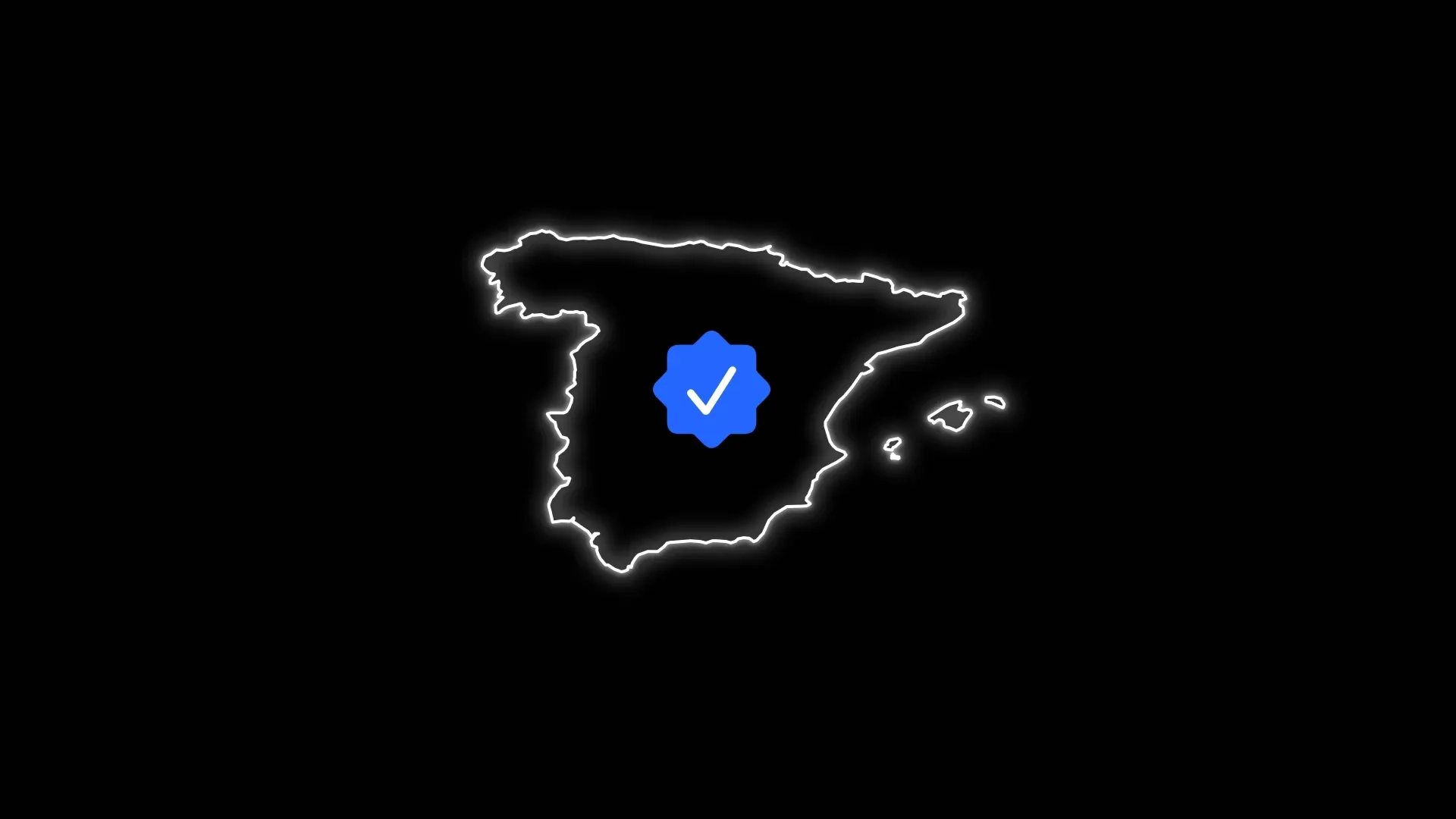هل تعلم أن عدم الالتزام بلوائح KYC وAML في إسبانيا قد يُكلّف شركتك حتى 10,000,000 يورو كغرامات؟ في عالمنا الرقمي اليوم، حيث تنتشر الذكاء الاصطناعي التوليدي (GenAI) والروبوتات وانتحال الهوية، يُعد إنشاء عملية قوية للتحقق من الهوية (KYC – اعرف عميلك) ضرورة أساسية لكل شركة تعمل في إسبانيا. ومع ذلك، يجد كثيرون صعوبة في مواكبة جميع اللوائح والبقاء على اطلاع بالتحديثات المستمرة.
تهدف لوائح KYC في إسبانيا إلى حماية المستهلكين، وإلى ضمان وضع الشركات للأساس الذي يتيح الامتثال لقواعد صارمة تساعد على مكافحة غسل الأموال وتمويل الإرهاب (AML/CFT). نستعرض فيما يلي هذا الإطار التنظيمي لتضمن شركتك الالتزام بجميع الالتزامات المحورية.
سواء كانت شركتك شركة ناشئة سريعة النمو أو مؤسسة راسخة تتطلع لدخول السوق الإسبانية، فسيوضّح هذا المقال كيفية عمل لوائح KYC وAML في إسبانيا كي تحوّل هذا التحدي إلى ميزة تنافسية.
ما هو KYC وAML ولماذا هما مهمّان في إسبانيا؟
يشير KYC إلى عملية تحقّق الشركة من هوية الشخص قبل بدء العلاقة التجارية، للتأكد من أن العميل هو بالفعل من يدّعيه. كما يمثّل نقطة الانطلاق للامتثال للوائح الأخرى المتعلقة بمكافحة غسل الأموال وتمويل الإرهاب (AML/CFT). في إسبانيا، يُعد التحقق من الهوية (KYC) إلزاميًا لقطاعات عديدة، وبخاصة القطاع المالي (الفنتك، البنوك، النيوبنوك، وغيرها).
تكمن أهمية التحقق من الهوية في سببين رئيسيين:
- الامتثال التنظيمي: يساعد KYC الشركات على تلبية متطلبات التحقق من الهوية، ثم الالتزامات الخاصة بمكافحة غسل الأموال وتمويل الإرهاب.
- منع الاحتيال: يضيف طبقة أمان إضافية للمعاملات عبر الإنترنت.
لوائح KYC وAML في إسبانيا: الإطار القانوني
تستند لوائح KYC في إسبانيا إلى القوانين والأطر التالية، وطنية كانت أم أوروبية:
- القانون 10/2010 الصادر في 28 أبريل بشأن منع غسل الأموال وتمويل الإرهاب.
- المرسوم الملكي 304/2014 الذي يُقرّ لائحة تنفيذ القانون 10/2010.
- توجيه البرلمان والمجلس الأوروبي (الاتحاد الأوروبي) 2024/1640 بتاريخ 31 مايو 2024 بشأن الآليات التي ينبغي أن تعتمدها الدول الأعضاء لمنع استغلال النظام المالي في غسل الأموال أو تمويل الإرهاب (AMLD6).
- لائحة eIDAS (لائحة الاتحاد الأوروبي 910/2014) المنظِّمة للهوية الإلكترونية وخدمات الثقة للمعاملات الرقمية.
المتطلبات الأساسية للتحقق من الهوية ومكافحة غسل الأموال (إسبانيا)
للامتثال لمتطلبات KYC في إسبانيا، يجب على الشركات توثيق هوية المستخدم عبر مستندات رسمية مثل بطاقة الهوية الوطنية (DNI) أو جواز السفر. يُعد ذلك الخطوة الأولى والأساسية ضمن عملية AML.
وبالإضافة إلى التحقق من الهوية، يتعيّن على الشركات ضمن إطار AML أن تقوم بما يلي:
- تقييم مخاطر العميل وتصنيفه وفق ملفه التعريفي.
- مراقبة المعاملات لاكتشاف أي أنشطة مشبوهة.
- حفظ السجلات الخاصة بالمستندات والمعلومات التي تم الحصول عليها لمدة لا تقل عن 10 سنوات.
تجدر الإشارة إلى أن العقوبات على عدم الامتثال لقواعد AML في إسبانيا صارمة. قد تصل الغرامات إلى 10,000,000 يورو على الجهة المُلزَمة، بالإضافة إلى توبيخ علني وسحب أو تعليق الترخيص. أمّا على مستوى التنفيذيين، فقد تصل الغرامات أيضًا إلى 10,000,000 يورو مع عدم أهلية لمدة 10 سنوات وتوبيخ علني.
4 نصائح لتطبيق حلول KYC وAML في إسبانيا
هل تحتاج إلى تطبيق حل للتحقق من الهوية ومكافحة غسل الأموال في إسبانيا؟ هذه التوصيات الأربع ستساعدك على الامتثال:
- الاعتماد على التقنيات المتقدمة: مثل الذكاء الاصطناعي والقياسات الحيوية والخوارزميات المتقدمة لرفع الدقة والكفاءة والأمان.
- أتمتة العمليات: تقلّل الأخطاء البشرية إلى أدنى حد، وتعزّز الكفاءة وتُحسّن تجربة المستخدم.
- متابعة اللوائح وتحديث الإجراءات: تبقى الأنظمة في تطور مستمر؛ حافظ على تحديث عملياتك.
- اختيار مزوّدين موثوقين: يخفّض إسناد خدمات KYC وAML إلى طرف خارجي التكاليف التشغيلية ويُحسّن العمليات ويخفف عبء الامتثال.
الخلاصة: تنظيم ضروري لمكافحة الاحتيال
تُعد أطر KYC وAML في إسبانيا صارمة لكنها ضرورية. فالنظام القوي للتحقق من الهوية يضع أساس الامتثال، ويُعزز الثقة، ويُغلق منافذ الاحتيال.
في Didit ندرك تعقيدات لوائح KYC وAML، ونوفّر حلولًا متقدمة تمكّن المؤسسات من تلبية المتطلبات القانونية بكفاءة وأمان. ولتحقيق ذلك، نقدّم حلًا مجانيًا ودائمًا وغير محدود للتحقق من الهوية. يشمل هذا KYC المجاني:
- التحقق من المستندات لاستخراج المعلومات وضمان صحتها.
- التعرّف على الوجه للتأكد من أن الشخص هو ذاته فعلًا، دون تعرّض لخدع الـDeepfake أو غيرها من أساليب الاحتيال.
وبالإضافة إلى KYC المجاني، نوفر خدمة اختيارية لفحص AML، نُطابق فيها الهوية المُوثّقة مع قواعد بيانات عامة وخاصة ودولية لاكتشاف الأشخاص المعرّضين سياسيًا (PEPs) والعقوبات والمؤشرات الأخرى ذات الصلة بمكافحة غسل الأموال.
وكل ذلك يتم خلال نحو 30 ثانية، مع تقديم أفضل تجربة ممكنة للمستخدم.
هل تريد معرفة المزيد عن حل KYC المجاني لدينا وحماية شركتك في إسبانيا؟ اضغط على اللافتة أدناه، وسيتواصل معك فريقنا للإجابة عن أي استفسار!

